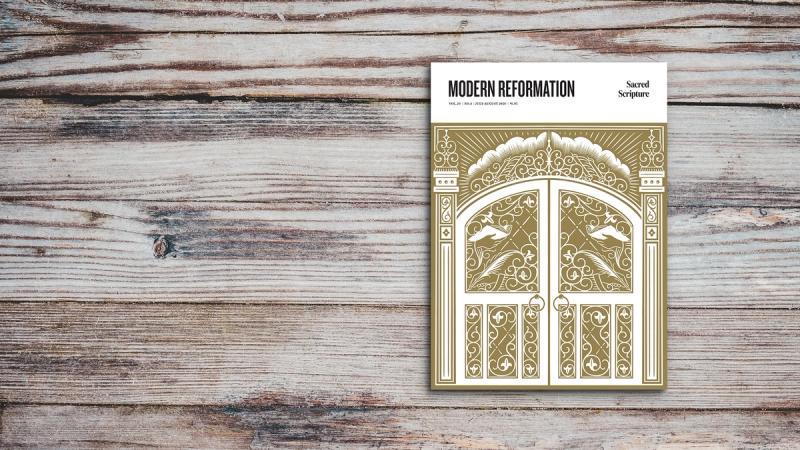Hope for Democracy: How Citizens Can Bring Reason Back into Politics
by John Gastil and Katherine R. Knobloch
Oxford University Press, 2020
240 pages (paperback), $28.00
For several years now, a steady stream of books has raised grave concerns about the state of American democracy, the deterioration of public discourse, the role of the media, and hyper-partisan politics. In Hope for Democracy, John Gastil and Katherine Knobloch provide a breath of fresh air in this arena by focusing on specific, practical measures that communities across America can take to recover real democracy from the twin dangers of skeptical apathy and blind partisanship. Though the practical focus somewhat narrows its scope, the book has much to offer as it makes the case for a more deliberative democracy.
Gastil and Knobloch are ideal authors for such a book, with their numerous research projects and extensive writings about democratic reforms designed to make democracy more intentional for citizens in ways that transcend party lines. Hope for Democracy is the capstone to over a decade of research and evaluation in this field, especially focusing on the Citizens’ Initiative Review (CIR), which is a democratic innovation that some communities and states across the nation have implemented to improve voter understanding of ballot initiatives. Somewhat akin to jury duty, CIRs are randomly selected groups of citizens that work together over the course of several days to analyze key issues in their community and prepare voter pamphlets about ballot initiatives. Voters then utilize this reliable, nonpartisan information in their deliberations before voting. While this may seem like a small step toward improving American democracy, the authors’ research shows a ripple effect throughout society when citizens develop habits of deliberation through such practices.
The authors briefly provide historical background, recounting the founders’ vision of an engaged citizenry, and work their way forward to turn-of-the-twentieth-century Progressive Era democratic reforms, which included the direct election of U.S. senators, ballot initiatives, referendums, and recalls. The authors’ argument is that political and societal developments have strained democracy to limits perhaps previously unknown, which necessitates additional reforms to actually maintain a truly democratic system in today’s world. What is left untouched, though, is the question of whether or not such moves toward direct democracy reflect a fulfillment of, or a departure from, the founders’ original design of indirect democracy in the form of a republic.
Some of the authors’ most helpful insights are summed up in succinct phrases that perfectly capture what modern democracy has become. Take for example the authors’ description of congressional partisanship as “legislative karaoke” with representatives taking turns singing their sound bites and scripted talking points at the microphone, more for the twenty-four-hour news cycle and their political base than for the purpose of deliberation and debate in the halls of Congress (25). Or consider another: Most modern societies are not actually democracies but “polyarchies” ruled by a professional elite political class, due to what the authors call the “professionalization of government” (23).
Especially helpful is the authors’ unpacking of the political alienation so common in modern society, in which they use a five-part metric that builds on the work of Hungarian philosopher István Mészáros and the framework of the American Sociological Review (cf. 33–34, 148–49):
- Commodification: One’s opinions and judgments get reduced to a political commodity.
- Social Isolation: Weak connections to fellow citizens and community networks.
- Meaninglessness: One gets presented with false choices and develops only limited political knowledge.
- Normlessness: Public institutions appear to perpetuate partisan warfare rather than democratic self-government.
- Powerlessness: One feels incapable of influencing government or addressing pressing community problems.
A way to fight these forces of alienation, the authors suggest, is found in forms of “deliberative democracy,” which require intentional interaction between citizens and engagement with differing perspectives. They state:
Across the globe, political reformers have been busy inventing new approaches to democracy that give average citizens more meaningful roles in making decisions, joining policy debates, or giving direct advice to the electorate. The core idea of this new movement is “deliberative democracy.” (11)
The authors’ long-term studies and evaluations of CIRs provide the main evidence for their claim and create the skeleton around which the book is built. Poignant personal stories of CIR participants put flesh on the bones of the objective data measurements to make a compelling case that CIRs can play a vital role in renewing American democracy.
One sign of a good book is when possible objections and counterarguments are anticipated. Gastil and Knobloch have done exactly that. When considering CIRs, several questions immediately surface: How are citizens selected for such committees? Is the information CIRs provide for voters really unbiased and nonpartisan? Would not CIRs just become another group to be lobbied by special interests? These questions and so many more are ably addressed by the authors, although they would be the first to admit that CIRs are a work in progress and that some issues remain unresolved.
Reading of the decade-long tireless efforts of countless people to create CIRs on a small scale gives a sense of overwhelming awe at the challenge of large-scale change in a crumbling democratic system. Institutional inertia is daunting to overcome. However, CIRs also may be one key among many for the recovery of meaningful civic life in local communities, or as the authors call them, “mini-publics” (152–53). A return to the local is perhaps the most likely hope for democracy, and CIRs could provide opportunities for citizens to practice the free exchange of ideas and foster mutual understanding (cf. 90, 165). For new skills or new habits to form, they must be modeled and practiced; by starting small in one’s immediate surroundings, measurable, impactful change can occur.
The authors also provide a helpful way to analyze cultural and ideological commitments, beyond the Right/Left, conservative/liberal dichotomy that pigeonholes or leaves out so many Americans. By viewing things along an x-axis of individualist to collectivist, and a y-axis of egalitarian to hierarchical, there is much more room for nuance, variety, and a “we” rather than an “us vs. them” mindset (84).
The book’s biggest strength is its in-depth analysis of CIRs as one facet of political reform. It would be interesting to see what the authors would suggest for improvements outside of the political arena, but that is well beyond the scope of their book. While beyond the book’s purpose, it does raise a larger point about progressivism in general today, which tends to view everything through a political lens. From a Christian perspective, this is indeed part of the very problem that contributes to such democratic breakdown and alienation in the first place. Without deeper meaning beyond politics, the political easily ascends to become eschatological on an unquestioned march of “change” and “progress.”
These progressive assumptions seem to surface at various points in the book. For example, in the authors’ treatment of how public opinion changes over time on moral issues, the narrative of progress is assumed. In their brief section on same-sex marriage, the argument comes across that if people were to just think logically about the issue, the proper and destined outcome is to agree with same-sex marriage, and popular opinion polls moving in this direction are marshalled as evidence of this progress (169). For Christians, or anyone who believes in moral absolutes for that matter, what determines the rightness of a moral position is not popular opinion but a transcendent order.
For Christians, this creates a deeper tension with democracy in general with its exaltation of the people. When a society is grounded in some shared sense of objective truth and a created order, democracy finds its proper positioning in the superstructures of reality. However, with the postmodern deconstruction of such meaningful narratives, what remains is the sovereign self, collectivized in the democratic voice of the sovereign people. Thus many people today find their hope for redemption in politics. In such a world, the sovereign will of the people is the best society can offer, which explains the extreme commitment and hyper-partisanship that is on the rise in a death match to be won at all costs.
The Christian has more than the shifting, sovereign will of the people in the saving, sovereign will of the God who ordered the universe and sent his own Son to redeem the world. The deep, thick community found around “the apostles’ teaching and the fellowship, the breaking of bread and the prayers” creates a habitus and orientation toward the world that emanates outward in meaningful family life, love toward neighbor, and vocations of service to the community. This puts democracy in its proper place, and it provides not just a hope for democracy but the sure and certain hope of ultimate progress and restoration in the life of the world to come.
Josh Pauling was educated at Messiah College, Reformed Theological Seminary, and Winthrop University and has written for Front Porch Republic, Salvo Magazine, and FORMA Journal. He is the head elder at All Saints Lutheran Church (LCMS).








